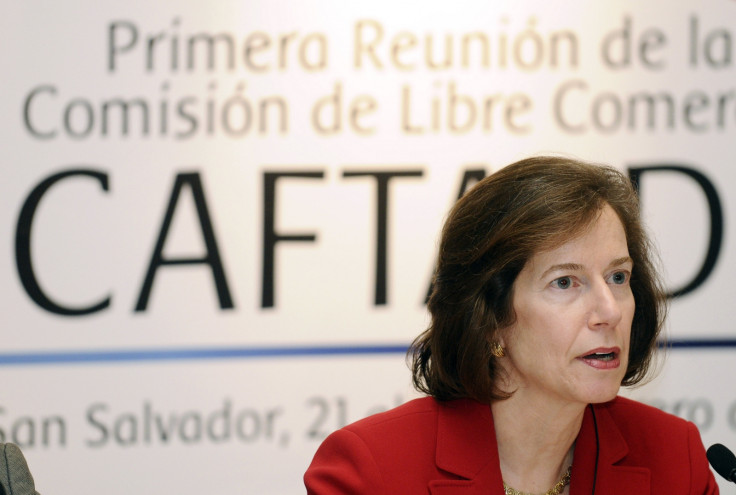TTIP Under Threat: Senior US Trade Expert Warns Over Removal of ISDS from EU-US Trade Deal

A US trade policy expert has urged for bipartisan co-operation in negotiating US free trade agreements, after the Republican Party claimed the Senate in the midterm elections.
In an email interview with IBTimes UK, the former Democrat Deputy US Trade Representative Miriam Sapiro, who now works at the Brookings Institution, also urged negotiators not to "create unintended consequences by hasty declarations or decisions" with regard to the potential removal of the controversial investor-state dispute settlement (ISDS) clause from the Transatlantic Trade and Investment Partnership (TTIP).
Following the midterm elections, Sapiro said that the Republicans will now need "serious Democratic support" to get the requisite legislation over the line that will facilitate the future finalisation of the Trans-Pacific Partnership (TPP) and TTIP.
A prerequisite to any such agreements will be the passing of the trade promotion authority (TPA) – a piece of legislation that allows the US Trade Representative Michael Froman – chief negotiator in free trade agreements – and his team to fast-track any finalised agreement through a vote in the Senate.
Under the TPA, the Senate gets an "up or down vote" on TPP or TTIP, without having the opportunity to amend any of the text. It also doesn't allow for filibuster and is set to defined timelines.
"TPA needs a majority of both houses of Congress although House Republicans have said they will not move the legislation forward without serious Democratic support," Sapiro said, adding that "the lame duck is certainly an opportunity to pass TPA, although it would defy expectations because such sessions usually do not accomplish a whole lot".
Sapiro said that TPA is more immediately relevant to TPP – an agreement being negotiated between Brunei, Chile, New Zealand, Singapore, the US, Australia, Peru, Vietnam, Malaysia Mexico, Canada and Japan – which is at a much more advanced stage than the EU-US equivalent. TPP, said Sapiro, "is in the endgame phase".
However, she said that she was uncertain as to whether there would be the requisite Democrat support to get the TPA over the line. At the time of writing, Republicans had secured 52 of 100 Senate seats, meaning that while they hold a majority, the party will require at least eight Democrat votes in order to get the TPA legislation through.
Republicans are traditionally more pro-free trade than their counterparts, with many Democrats harbouring concerns over the environmental, labour and social impact of wide-reaching free trade agreements. Much will depend on whether Sapiro and her counterparts will be able to persuade party Senators to back the TPA.
When asked how confident she was of achieving this, she replied only: "We'll see. Issues that have surfaced include currency, labour, environment and transparency."
Discussions for both TPP and TTIP have been arduous, with heightened public interest and widespread protests in both the US and EU as to whether either agreement will lead to a loss in standards. In the EU, there are fears that GMOs used in the US food sector will enter the European market. There are also fears over how lower US standards over labour rights (such as collective bargaining and minimum wage) could be adapted by US companies operating in Europe.
Both sides have attempted to downplay the likelihood of this, but Sapiro acknowledges that they are some way apart in achieving an agreement.
"It's no secret that both the US and Europe think their standards are higher. There's no need to resolve that question, but there is a need to figure out how both systems can work better together. I hear broader support for TTIP at the moment, but it will course depend on the negotiators bringing home a strong package, including on agriculture," she said.
Sapiro also nodded to the confusion existing on both sides of the Atlantic over the ISDS clause, which politicians have been lobbying to remove from negotiations.
ISDS is a common facet of free trade and has traditionally been used to protect the overseas assets of investors, as part of bilateral trade agreements. However in recent years it has been commonly used by corporations to sue governments for loss of profits.
The Ambassador urged negotiators on both sides to realise its value and to work together for an amenable solution.
"ISDS is as important as it is misunderstood in the context of these negotiations. I think there are ways to improve the process, as both sides have recognised, rather than create unintended consequences by hasty declarations or decisions," she said.
© Copyright IBTimes 2025. All rights reserved.






















